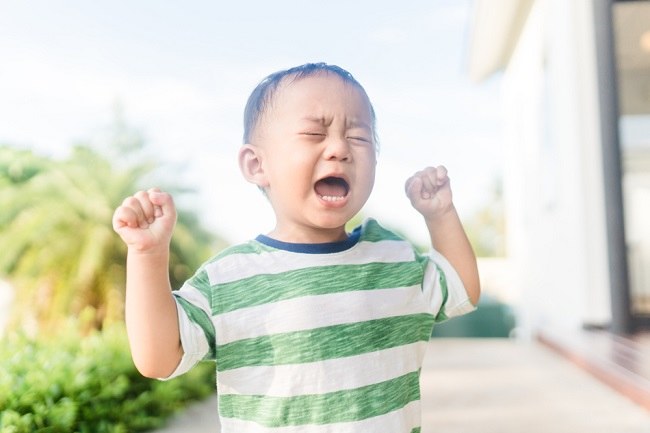Sneezing usually occurs suddenly and is often unbearable. However, there are times when we hold back a sneeze to keep the people around us comfortable, especially when in public places. On the other hand, holding back a sneeze can actually have a negative impact on health.
Sneezing is the body's natural way to expel or get rid of foreign objects that cause irritation in the nose and throat. These foreign objects can be in the form of many things, such as dust, chemical gases, to viruses or bacteria. It is for this reason that sneezing should not be held back.

How does a sneeze occur?
When a foreign object enters the nose, the nervous system in the nasal cavity will send a signal to the brain to convey that there is something disturbing in the nose. The brain is the central regulator of the process of sneezing.
After receiving these signals, the brain will send messages to the muscles of the body, such as the chest muscles, abdominal muscles, diaphragm, vocal cord muscles, back of throat muscles, and eyelid muscles, to get ready to expel a foreign object in the nose.
When you sneeze, the nose generally feels a little itchy, then you will yawn a little to increase the air pressure in the nose. After that, the muscles of the body will work together to remove the foreign object in the nose and a 'hachiiimm' sound will be emitted.
When you sneeze, at least 100,000 germs and viruses can be spread into the air at a speed of 160 km per hour. Some examples of viruses that can be transmitted through sneezing are the Corona virus and influenza.
What are the Causes of Sneezing?
There are several things that can trigger a sneezing reaction, including:
Allergy
Allergies occur due to an overreaction of the body's immune system to certain objects or substances, such as fleas, mites, animal dander, pollen, cigarette smoke, perfume, or dust.
When you are exposed to allergy triggers (allergens), your nose will feel itchy and your body will try to get rid of the allergy triggers. One of the diseases that can cause people to sneeze frequently due to allergies is allergic rhinitis.
Irritation and inflammation in the nose
Sneezing can also occur due to irritation or inflammation in the nose, for example due to infection. Some diseases or conditions that often cause sneezing are colds, flu, and rhinitis.
In addition, sneezing can also occur when a person inhales a substance or gas that can irritate the nose, such as chili powder or pepper. This is because both of them contain piperine, which is a chemical compound that produces a spicy taste.
Stimulation on the face
Plucking hair on areas of the face, such as eyebrows or mustaches, can also trigger nerves in the face to send a sneeze signal to the brain, resulting in the sneezing reaction.
Sport
Exercising is also known to trigger sneezing in some people. This is because during exercise, blood flow to the nose will decrease and make the nose drier and easier to sneeze.
In addition, when exercising, a person will breathe faster to meet the body's oxygen needs. This can allow more foreign objects, such as dust, to be inhaled and make it easier for the nose to sneeze.
In some people, sneezing can also occur during sex or orgasm and certain psychological problems, such as stress. In addition, exposure to sunlight can sometimes trigger sneezing.
What are the Risks and Dangers of Holding a Sneeze?
Some of you may feel bad about sneezing because you are worried about disturbing the people around you, especially in the midst of the COVID-19 pandemic like now. However, holding back a sneeze is not a good thing to do.
The following are some of the risks that can occur when someone often holds back a sneeze:
1. Hearing loss
When you sneeze, the air pressure in your nose, throat, and eustachian tube near your ear increases. If the body does not expel this air through sneezing, the high air pressure in the head cavity can be trapped and this can interfere with hearing.
This condition can go away on its own in a few days or weeks. However, in severe cases, this can lead to injury to the eardrum, which requires surgery.
2. Infection
Sneezing serves to clear the nose of various foreign objects in the nose, including bacteria and viruses. If you hold your sneeze often, bacteria and viruses will stay in your nose, which can cause infection. In certain cases, this infection can spread to the ear.
3. Injury to the nose, eyes, or eardrum
Sneezing held back will make the air pressure in the facial cavity increases. This can put the tiny blood vessels in the eyes, nose, and around the eardrum at risk for rupture.
This injury can cause symptoms such as red spots in the eyes, nosebleeds, or bleeding from the ears.
4. Diaphragmatic injury
The diaphragm is the muscle that separates the chest and abdomen. This muscle plays an important role in the process of breathing, coughing, vomiting, and sneezing. Injuries to this area from holding in a sneeze are very rare. However, if it occurs, this condition can be dangerous and interfere with breathing.
In addition to injury to the diaphragm, holding back a sneeze is also at risk of causing injury to the throat which is characterized by difficulty speaking or swallowing food. In more severe cases, the habit of holding back a sneeze can lead to rupture of a brain aneurysm and injury to the ribs.
Because it can cause various health problems, you are advised not to hold back your sneeze. In order not to disturb the comfort of those around you, you can do the following sneezing and coughing etiquette:
- Use a tissue when you sneeze to cover your mouth and nose, then throw the tissue away.
- If you don't have a tissue, use the crease of your elbow to cover your mouth and nose when you cough or sneeze.
- Immediately wash your hands or use hand sanitizer after sneezing or coughing.
In essence, sneezing is normal and should not be held back. Sneezing can keep the body healthy, because this activity is an important part of the body's protective mechanism. If you sneeze, your body clears your nose of bacteria and viruses.
If you often sneeze and have difficulty controlling it, or if there are other complaints that often accompany sneezing, such as headaches, ear pain, nosebleeds, fever, or shortness of breath, you should consult this problem with your doctor so that it can be treated appropriately.









